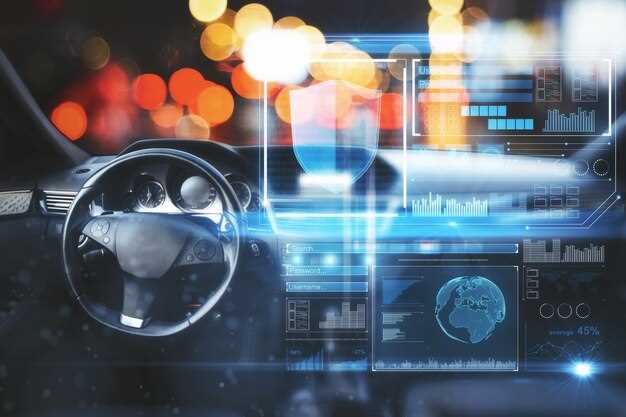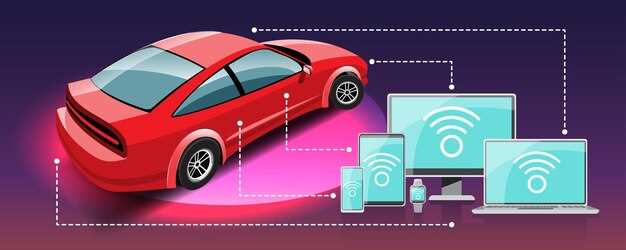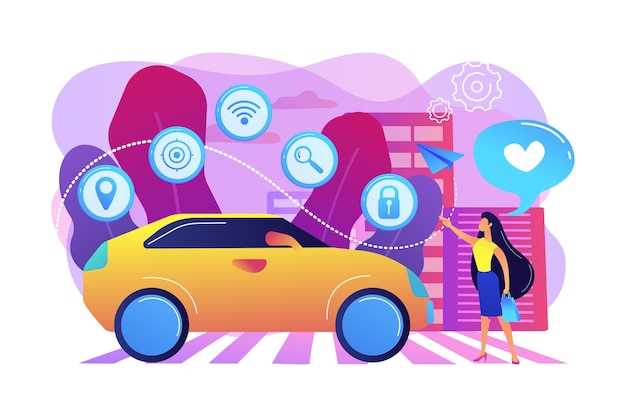
In the rapidly evolving automotive landscape, Toyota stands at the forefront of integrating artificial intelligence (AI) into its vehicles, creating smart cars that redefine the driving experience. These innovations are not merely enhancements; they represent a paradigm shift in how we perceive mobility and interaction with vehicles. By leveraging AI technologies, Toyota is pushing the boundaries of safety, efficiency, and user engagement.
One of the most significant advancements in Toyota’s approach is the incorporation of AI systems that analyze real-time data to adapt the car’s performance and features to the driver’s preferences. This leads to a more personalized driving experience, where the vehicle becomes an intuitive partner on the road. The integration of this technology enables smart cars to provide predictive maintenance, alert drivers to potential hazards, and enhance overall vehicle performance.
Furthermore, Toyota’s commitment to developing AI-driven solutions extends to advancing autonomous driving capabilities. The application of deep learning and machine vision technologies allows these vehicles to navigate complex environments safely and efficiently. By focusing on smart technology, Toyota is not only improving the functionality of its cars but also shaping the future of transportation.
Real-time Driver Assistance Systems in Toyota’s Smart Cars

Toyota has significantly advanced the development of real-time driver assistance systems, integrating cutting-edge AI technology into its smart cars. These systems are designed to enhance safety, improve driving efficiency, and provide an overall better driving experience.
At the core of Toyota’s real-time assistance technology is the Toyota Safety Sense platform. This suite of features leverages AI algorithms to offer capabilities such as adaptive cruise control, lane departure alert, and pre-collision systems. By continuously analyzing data from various sensors, these systems can respond to dynamic road conditions and potential hazards, ensuring the driver remains informed and safe.
In addition, Toyota’s smart vehicles utilize machine learning to adapt to individual driving behaviors. This personalization allows the car to make real-time recommendations and adjustments, enhancing the interaction between the driver and the vehicle. For example, the AI can suggest optimal acceleration patterns and provide alerts for sharp turns, improving overall road safety.
Toyota also emphasizes connectivity in its smart cars, enabling real-time communication between vehicles and infrastructure. This vehicle-to-everything (V2X) communication allows the AI systems to gather information from other smart devices, traffic signals, and road conditions, facilitating proactive decision-making that assists drivers in avoiding potential accidents or traffic congestion.
Through these innovations, Toyota is not only prioritizing safety but also enhancing the overall driving experience. By integrating AI into real-time driver assistance systems, Toyota’s smart cars stand at the forefront of automotive technology, making driving safer and more enjoyable for everyone on the road.
Enhancing Safety Features Through AI Technology in Toyota Vehicles

Toyota has been at the forefront of integrating advanced AI technology into their smart cars, significantly enhancing safety features for drivers and passengers. Through sophisticated algorithms and real-time data analysis, Toyota vehicles are equipped with systems designed to predict and mitigate potential hazards on the road.
One notable application is the Toyota Safety Sense suite, which utilizes AI to enable features such as adaptive cruise control, lane departure alert, and pre-collision systems. These features work together to create a more secure driving environment, allowing the car to detect obstacles and respond accordingly, thus reducing the risk of accidents.
Moreover, the implementation of machine learning allows Toyota cars to continuously improve their safety systems based on driving patterns and environmental conditions. This adaptive learning capability ensures that the vehicles remain responsive and capable of addressing new challenges on the road, making them safer over time.
Additionally, Toyota’s Advanced Driver Assistance Systems (ADAS) leverage AI to analyze vast amounts of data from multiple sensors. This enhances situational awareness, helping drivers make informed decisions in real-time. By merging data from cameras, radar, and LiDAR, these smart systems deliver a comprehensive view of the vehicle’s surroundings, ultimately prioritizing safety.
In conclusion, Toyota’s commitment to harnessing AI technology in their cars exemplifies a significant advancement in automotive safety. By continually innovating and enhancing their safety features, Toyota is setting new benchmarks in the industry, ensuring a safer future for all road users.
Infotainment and Connectivity: How Toyota Utilizes AI for User Experience
Toyota has integrated artificial intelligence (AI) into its infotainment and connectivity systems, enhancing the user experience in modern cars. This innovation allows drivers and passengers to enjoy a seamless interaction with in-car technology while prioritizing safety and convenience.
The following aspects highlight how Toyota employs AI to optimize user experience:
- Voice Recognition: Toyota’s AI-powered voice recognition system enables drivers to control various functions, such as navigation, music, and phone calls, without taking their hands off the wheel. This feature improves focus on driving while providing intuitive access to infotainment services.
- Personalized Recommendations: The system learns from user preferences and behavior, offering personalized suggestions for music playlists, driving routes, and points of interest. This customization enhances the overall driving experience and increases user satisfaction.
- Smart Navigation: AI-enhanced navigation systems utilize real-time traffic data to provide optimal driving routes. This feature reduces travel time and helps drivers avoid traffic congestion, making every journey more efficient.
- App Integration: Toyota’s infotainment systems are compatible with a wide range of popular apps, allowing users to access entertainment and productivity tools seamlessly. AI optimizes these integrations to ensure smooth functionality and user engagement.
- Safety Features: AI-driven technology contributes to safety by integrating alerts and recommendations based on driving conditions. For example, the system can provide reminders about seatbelt usage or suggest break periods during long drives.
Furthermore, Toyota’s commitment to innovation in AI technology facilitates regular software updates, ensuring that users benefit from the latest features and improvements without the need for extensive hardware changes.
In summary, Toyota’s utilization of AI in its infotainment and connectivity systems profoundly enhances user experience in their cars. Through features that prioritize convenience, personalization, and safety, the brand remains at the forefront of automotive innovation.
